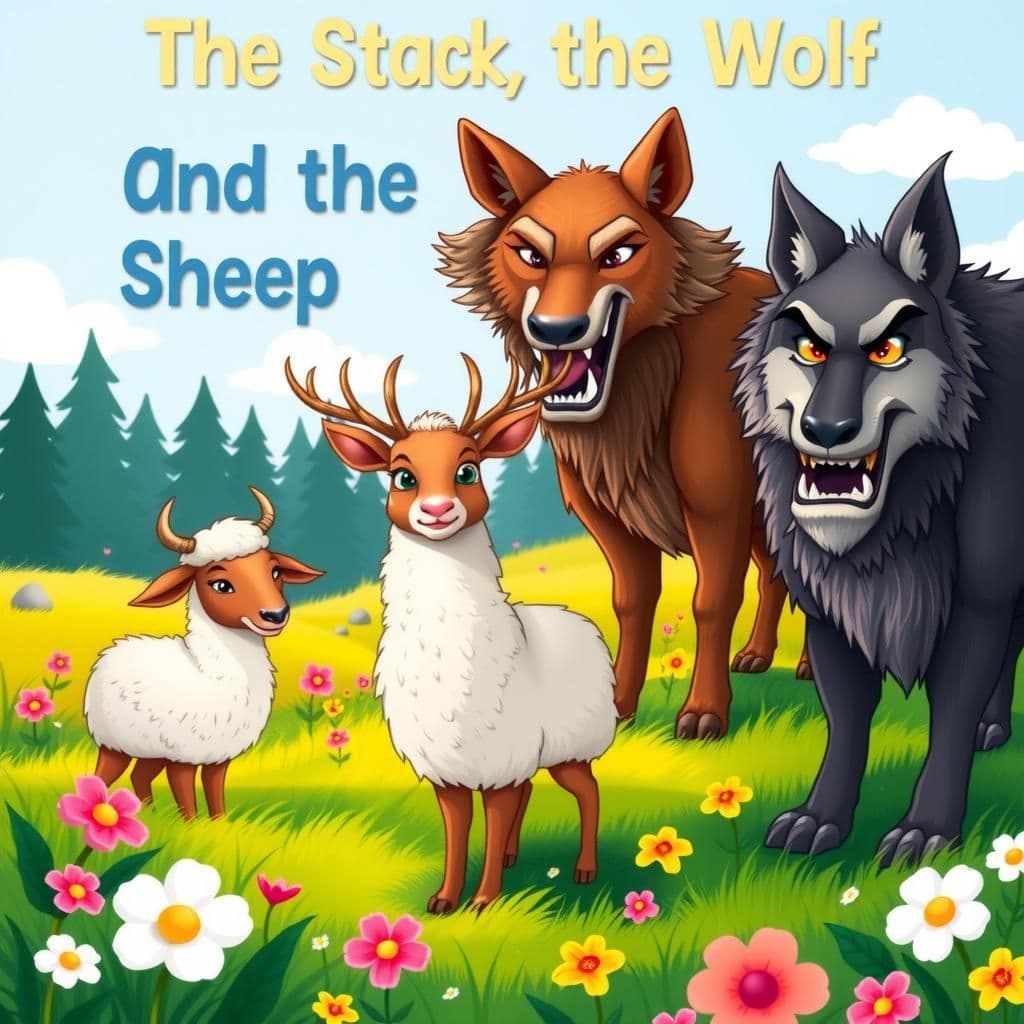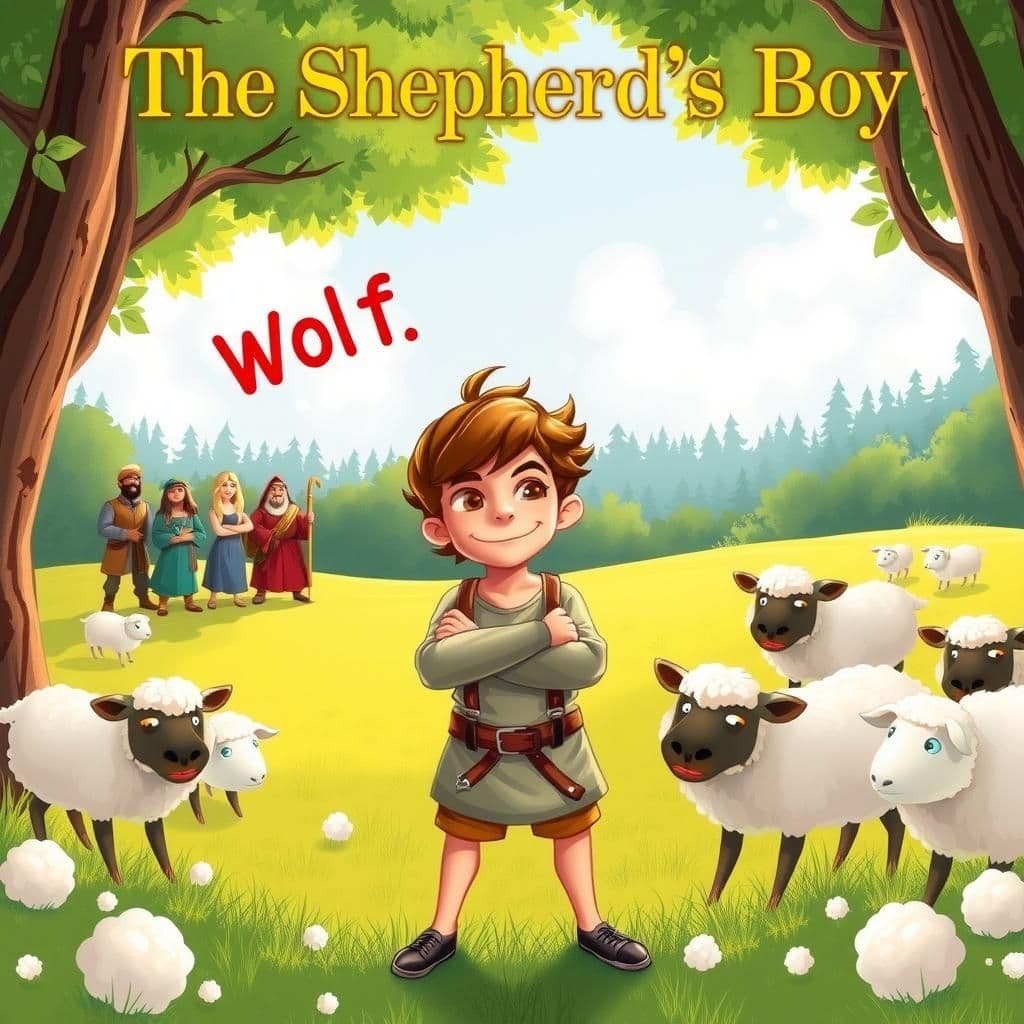The Stag the Wolf and the Sheep
In "The Stag the Wolf and the Sheep," a Stag seeks a measure of wheat from a Sheep, promising the Wolf as a guarantor. The cautious Sheep declines, fearing both parties' deceit, illustrating the lesson that two dishonest individuals do not create trust. This wisdom-packed moral story teaches young readers that caution is essential when dealing with untrustworthy characters.

Reveal Moral
"One should be cautious in trusting those who are untrustworthy, as their combined deceit can lead to greater trouble."
You May Also Like

The Thirsty Pigeon
In "The Thirsty Pigeon," a moral story that serves as a cautionary tale for children, a pigeon, desperate for water, mistakenly believes a painted goblet on a signboard is real and crashes into it, injuring herself. Captured by a bystander, her plight illustrates the importance of discretion over impulsive actions, making it a valuable lesson found in motivational stories with moral for class 7.

The Shepherd's Boy
In this fable story with moral, a lonely young Shepherd Boy tricks the villagers twice by falsely shouting "Wolf" to gain their attention. When a real Wolf appears and threatens his sheep, the villagers ignore his cries, believing he is lying again, leading to a loss of his flock. This unique moral story teaches young readers that a liar will not be believed, even when telling the truth, emphasizing the importance of honesty in real-life stories with moral lessons.

The Quack Frog
In "The Quack Frog," a frog falsely claims to be a skilled physician, boasting of his medical expertise to all the animals. However, a skeptical fox highlights the frog's own ailments, teaching young readers a timeless moral about the folly of pretending to have qualifications one does not possess. This short moral tale serves as a valuable lesson learned from stories about the importance of honesty and self-awareness.